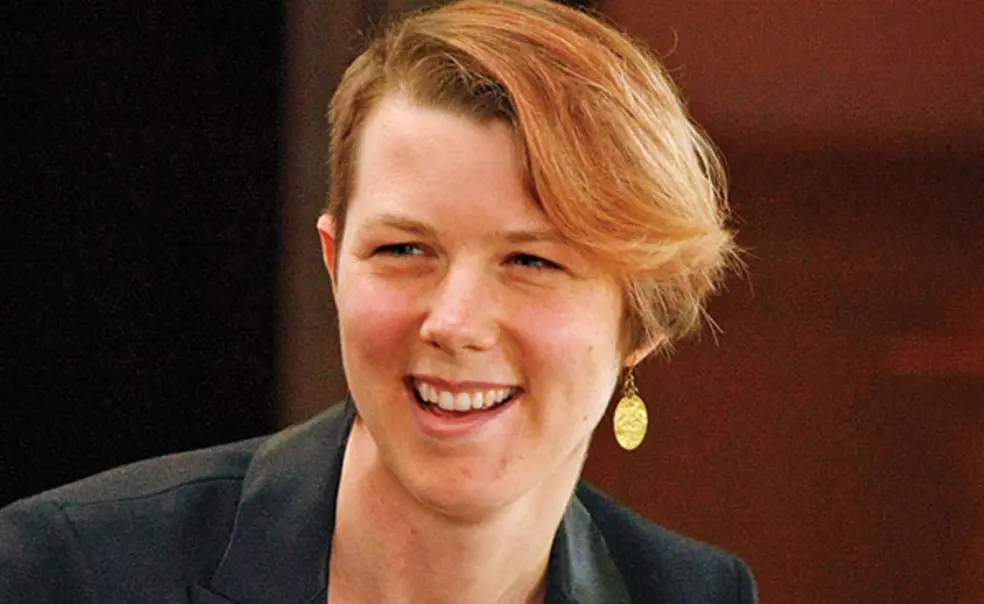LGBTQIA Oral Histories Chronicle Alumni Experiences for Archives
Seventy-three lesbian, gay, bisexual, transgender, queer, intersex, and asexual alumni now have their voices and their stories recorded in the University’s archives.
The LGBTQIA Oral Histories Project set out to interview alumni from different backgrounds and generations to record their experiences before, during, and after their time on campus.
LGBT Center director Judy Jarvis began thinking about the project in January 2016. She learned from the “Every Voice” conference for LGBT alumni in 2013 that more stories from alumni needed to be listened to and preserved.
Jarvis quickly found partners on campus, including the Princeton Histories Fund of the provost’s office, the University Archives, the Program in Gender and Sexuality Studies, the Community-Based Learning Initiative, and the Princeton Bisexual, Transgender, Gay and Lesbian Alumni Association.
BROWSE the LGBTQIA oral histories at bit.ly/LGBTQIA-history.
Four students were trained by Gill Frank, a visiting fellow at the Center for the Study of Religion, before spending the summer of 2017 interviewing alumni across the country, from the Class of 1955 to the Class of 2015. Many interviews ran as long as two hours.
“It was strangely emotional,” said Suman Chakraborty ’97, the project’s alumni board co-chair. “I found myself crying during my storytelling, which I didn’t expect.”
The project was unveiled to alumni March 10 with a series of panels and a dinner on campus. Chakraborty moderated a panel with Christina Chica ’15 and Paloma Aguas ’18, who discussed their experiences as interviewers.
VIDEO from Princeton.edu: LGBTQIA Oral History Project connects students to the past
Interviewees’ stories commonly included “a lot of trauma and a lot of pain,” Aguas said during the discussion. “The willingness to share their stories for a greater purpose was refreshing.”
The interviewers found that progress in the Princeton LGBTQIA community has not been steady.
“I was surprised some [students in] the more recent class years had even more problems than the past ones,” said Rita Keazer ’20, another interviewer. “In ways we’ve regressed, and in ways we’ve progressed.”
The 73 interviews can be heard and read online through the Mudd Manuscript Library. Jarvis said at least one professor is using the archive in a class this spring and that students are using it for independent research.
There are plans to expand the collection with additional oral histories, according to Jarvis. “My goal for the project is that this is a really active, living archive.”












1 Response
Daniel J. Linke
7 Years AgoInterview Transcripts Online
The University Archives is pleased to note that the LGBTQIA oral history transcripts are available online here: https://findingaids.princeton.edu/collections/AC465